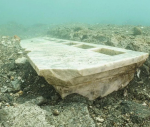You are here
The necessity of territorial integrity
Jul 20,2022 - Last updated at Jul 20,2022
STOCKHOLM — After World War II, global diplomatic efforts sought to create a new international order that would prevent the world from descending into war, chaos and anarchy again. A major part of that project was to refine the international legal order by establishing tribunals to prosecute war crimes. Hearings held in Nuremberg and Tokyo established that aggression is the “supreme international crime”, one for which leaders from Nazi Germany and Imperial Japan were sentenced to death.
The Nuremberg Tribunal’s judgement was very clear on this point: “To initiate a war of aggression is not only an international crime; it is the supreme international crime, differing only from other war crimes in that it contains within itself the accumulated evil of the whole.” Since then, the international order has rested on the territorial integrity of states. To challenge this core principle with a violent act of aggression, the supreme international crime, is to put the entire world at risk of sinking into disorder, chaos and war.
In a resolution adopted on March 2 of this year, the United Nations General Assembly condemned Russia for committing precisely this offence. Viewing Russia’s February 24 invasion of Ukraine as an act of aggression, the resolution demands that Russia “immediately, completely and unconditionally withdraw all of its military forces from the territory of Ukraine within its internationally recognised borders”.
True, Russia is not the first power to commit the crime of aggression, or even the first permanent member of the UN Security Council to do so. The United States has intervened in other countries within its own hemisphere; the Soviet Union invaded Hungary, Czechoslovakia and Afghanistan during the Cold War; and China sent its forces into Vietnam in 1979. But Russia’s war of aggression against Ukraine is different, because its express purpose is to subjugate, dismantle and eventually eliminate Ukraine as a sovereign nation-state. Russian President Vladimir Putin has said so openly and explicitly.
As such, Russia’s war is unusual in modern history. One obvious comparison is to Hitler, who aimed to eliminate Poland when he launched his war of aggression in 1939, forging an agreement with Stalin to partition the country between them. Another is Saddam Hussein’s attempt in 1990 to eliminate Kuwait and make it part of Iraq. But, other than these two cases, I can think of no other close examples in recent history.
In any case, the world did not accept Hitler’s effort to eliminate Poland or Saddam’s attempt to wipe out Kuwait, and nor should it recognise any other modern attempt to change borders by force. Aggression is still the supreme international crime. Having formally recognised the statelets that it set up in the Donbas region of Ukraine in 2014, the Donetsk and Luhansk People’s Republics (DPR and LPR), Russia clearly intends to absorb these occupied parts of Ukraine, thus continuing its dismemberment of an independent UN member state.
But the only other countries to recognise the Donbas statelets have been North Korea and Syria, and that will likely remain the case, because even countries that are otherwise close to Russia have little interest in following it down this road. Kazakhstan has already made clear that it will not recognise the DPR and LPR as independent states. And even Russia’s satellite regime in neighbouring Belarus is certain to balk at recognising the Donbas statelets.
How China responds is of particular importance. Does Chinese President Xi Jinping’s “no limits” friendship with Putin mean that China will abandon territorial integrity as one of its core principles? To take that step would powerfully undermine its demand that the rest of the world continue recognising Taiwan as part of China.
So far, China has avoided any talk of Russian aggression or Ukrainian territorial integrity. But, given that China has long regarded this issue as sacrosanct, it cannot sit on the fence for long. An old Roman legal maxim holds that “silence means consent” (qui tacet consentire videtur). Until China speaks up, the international community has every right to assume its tacit consent to Russian aggression, and to demand more clarity about where it intends to stand on this critical question.
Finally, the African countries that abstained from the March 2 UN resolution, for their own unrelated reasons, should reconsider their position. Whatever their grievances with the West, they have little to gain from an erosion of the principle of territorial integrity or the international norm against aggression.
Today’s national borders are not the result of any scientific process or acts of divine intervention. In Europe and in many other parts of the world, borders were drawn in blood through centuries of war and conflict. Sweden and Denmark, for example, fought over their border for centuries before the conflict was grudgingly settled and consigned to the past. In Eastern Europe, wars over borders have generated millions of victims during the past century.
Given this bloody history, there are very good reasons for continuing to treat aggression as the supreme international crime, and territorial integrity as the foundation stone of the international order. The WWII generation was right to establish these principles in Nuremberg and Tokyo. We should be extremely careful not to break from what they started. Down that road lies only ruin.
Carl Bildt is a former prime minister and foreign minister of Sweden. Copyright: Project Syndicate, 2022. www.project-syndicate.org













